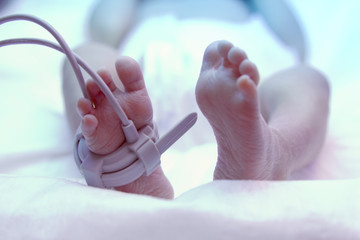
Newborns delivered before the eighth month of pregnancy sometimes exhibit deficits in cognitive and socio-emotional functioning that persist into adulthood. Mindfulness-based interventions that can improve cognitive and socio-emotional regulation may help remediate such lasting deficits.
Siffredi et al. [Scientific Reports] performed a randomized trial to test the effects of a mindfulness-based intervention on cognitive, social-emotional, and behavioral competencies in children born prior to 7.5 gestational months of age.
The researchers randomly assigned 56 very prematurely born Swiss children (age range = 10-14 years; average gestational age = 29 weeks; 54% female) to a mindfulness-based intervention or wait-list control. The mindfulness training was an 8-week intervention consisting of weekly 90-minute group sessions.
The program modeled Mindfulness-Based Stress Reduction and Mindfulness-Based Cognitive Therapy but was adapted for age. It included the body scan and sitting, walking, and movement meditations as well as didactic education on kindness, non-judgment, letting go, and gratitude.
Participants were assessed at baseline, immediate post-intervention, and 3-month follow-up on parent ratings of the child as well as child self-reports of cognitive, social-emotional, and behavioral competencies. Children also completed a battery of neuropsychological tests (pertaining to number sequencing and timed math ability) and computerized attentional tasks.
The results showed children in the mindfulness group scored significantly better at post-intervention on parent ratings of emotional control, the ability to focus and shift attention, and to initiate, plan, organize, and self-monitor behavior. Children in the mindfulness group also showed larger decreases in reaction times than controls on a computerized attentional task assessing the ability to ignore irrelevant stimuli.
There were no significant group differences on any of the child self-report measures or neuropsychological test ability scores at post-intervention. At 3 months, the mindfulness group maintained its improved reaction time on the computerized attention task and improved on self-compassion compared to controls.
There were no other improvements on 3-month follow-up, and the previously noted improvements in parental ratings were no longer significant.
When participants were divided analytically into high and moderate risk groups based on birth weight and gestational age, the high risk group was more likely to maintain gains in parent-rated executive and metacognitive functioning at 3-month follow-up. The moderate risk group was more likely to maintain their faster reaction times on the computerized attentional task.
The high-risk group showed significant gains in self-compassion immediately after the intervention, while the moderate-risk group only showed improved self-compassion at 3-month follow-up.
The study shows that a mindfulness-based intervention delivered to children who were preterm at birth led to improvements in parental ratings of their child’s emotional control and cognitive function. Children in the mindfulness group also showed improved reaction time on a computerized attentional task.
Effect sizes were not reported for study outcomes, making it hard to discern the clinical utility of these findings. Lack of an active control group in the study may have led parents to report improvements in their child simply due to the expectation that any support program should be helpful.
Reference:
Siffredi, V., Liverani, M. C., Hüppi, P. S., Freitas, L. G. A., De Albuquerque, J., Gimbert, F., Merglen, A., Meskaldji, D. E., Borradori Tolsa, C., & Hà-Vinh Leuchter, R. (2021). The effect of a mindfulness-based intervention on executive, behavioural and socio-emotional competencies in very preterm young adolescents. Scientific Reports, 11(1), 19876.
Link to study